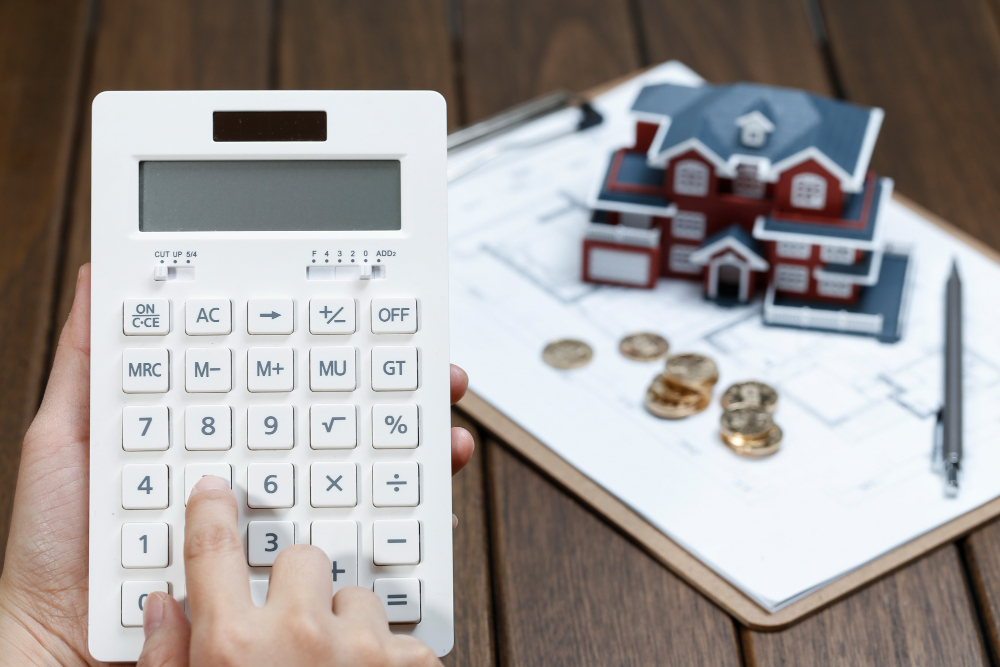Understanding Property Taxes in Calgary: What Homeowners Need to Know

Understanding Property Taxes in Calgary:
In Calgary, property taxes are more than just a financial obligation; they represent a significant aspect of homeownership that directly impacts your financial stability and contributes to the maintenance of essential municipal services. A thorough understanding of how property taxes are calculated, the factors influencing them, and the available relief options for homeowners to effectively manage their finances and plan for the future. This comprehensive guide aims to provide homeowners with all the necessary information regarding property taxes in Calgary, covering aspects such as tax rates, assessment procedures, appeal processes, exemptions, payment deadlines, and avenues for relief.
How are property taxes calculated in Calgary?

Property taxes in Calgary are calculated based on the assessed value of your property and the applicable municipal tax rate. The assessed value is determined by the City of Calgary's Assessment Department, which evaluates various factors including the size, location, age, and condition of the property. This assessed value is then multiplied by the annual tax rate set by the City Council to determine the total amount of property taxes owed by the homeowner.
Calgary property tax rates for 2023
The property tax rates in Calgary can vary depending on the classification of the property (residential or commercial) and its location within the city. For residential properties, the tax rate for the year 2023 is anticipated to be approximately 0.41%, while commercial properties may face a higher tax rate, typically around 1.34%. Homeowners need to consult the official City of Calgary website or contact the Assessment and Taxation Department for the most accurate and up-to-date tax rates. Property owners must understand these variations and how they impact their tax liabilities. Residential property owners can expect a lower tax burden compared to commercial property owners due to the difference in tax rates.
To ensure accuracy and obtain the most up-to-date information regarding property tax rates in Calgary for 2023, homeowners and businesses should refer to the official City of Calgary website or directly contact the Assessment and Taxation Department.
Steps to appeal property tax assessment in Calgary
If homeowners believe their property has been over-assessed and are paying more in property taxes than they should, they can appeal the assessment. The first step in the appeals process is to file a complaint with the Assessment Review Board, providing supporting evidence to substantiate their claim. The Board will then review the case and decide based on the evidence presented by both parties.
Impact of Calgary's property tax increase on homeowners
An increase in property taxes in Calgary can have a significant impact on homeowners, potentially leading to higher expenses and affecting the affordability of homeownership. Homeowners must anticipate potential tax increases, budget accordingly, and explore available relief options to mitigate the financial burden.
Understanding the Impact
The ramifications of a property tax increase in Calgary are far-reaching for homeowners. An uptick in property taxes translates directly to higher annual expenses. This increase can strain household budgets, making it more difficult for homeowners to manage mortgage payments, property upkeep, and other essential costs. In essence, the financial stability and affordability of homeownership come under pressure with rising property taxes.
Anticipating and Budgeting for Tax Increases
Proactive financial planning is key for homeowners aiming to navigate the challenges posed by potential property tax increases. Recognizing the likelihood of such hikes is the first step in this process. Homeowners should regularly monitor announcements from the City of Calgary and engage with property tax estimators or consultations to forecast potential changes to their tax obligations.
Exploring Tax Relief and Exemption Programs
The City of Calgary offers various programs aimed at providing relief to homeowners impacted by property tax increases. These programs, including tax deferral options, exemptions, and rebate schemes, are designed to offer financial reprieve to qualifying homeowners. For instance, seniors, low-income households, and individuals experiencing financial hardships due to unforeseen circumstances may be eligible for specific tax assistance programs.
What affects your property tax in Calgary?

Several factors can influence a homeowner's property tax in Calgary, including changes in property value, adjustments to tax rates, and eligibility for exemptions or relief programs. Staying informed about these factors can help homeowners better understand their property tax obligations and plan accordingly.
Deadline for property tax payment in Calgary 2023
The deadline for property tax payment in Calgary typically falls at the end of June each year. Homeowners must mark this date on their calendars and ensure they have the necessary funds set aside to meet their tax obligations on time. Failure to pay property taxes by the deadline can result in penalties and interest charges.
How to apply for property tax relief in Calgary
Homeowners who are facing financial hardship or struggling to meet their property tax obligations may be eligible for relief programs offered by the City of Calgary. These programs provide financial assistance to qualifying individuals and households. Homeowners can apply for relief through the city's website or by contacting the Assessment and Taxation Department for assistance.
Understanding your property tax bill in Calgary
Your property tax bill in Calgary provides detailed information about the taxes owed, any exemptions or adjustments applied, and the due date for payment. It's essential for homeowners to carefully review their property tax bills and reach out to the city if they have any questions or concerns about their tax assessment.
Differences between commercial and residential taxes in Calgary
Commercial properties in Calgary are typically subject to higher tax rates compared to residential properties, reflecting the differing service and infrastructure needs of each property type. Understanding these differences can help homeowners effectively budget and plan for their property tax obligations.
Tips for reducing property tax in Calgary
To reduce their property tax burden in Calgary, homeowners can consider strategies such as making property improvements, applying for exemptions, and appealing their property tax assessment. By exploring these options, homeowners may be able to lower their property tax bills and save money.
How property taxes fund municipal services in Calgary
Property taxes play a crucial role in funding essential municipal services in Calgary, including police, fire, transportation, and parks. By paying their property taxes, homeowners contribute to the upkeep and improvement of their community, supporting services that enhance their quality of life and property values.
Property tax payment plans in Calgary
In Calgary, understanding your property tax payment options is essential, especially if you're facing challenges in settling your tax bill in full by the due date. The city recognizes the varied financial situations of homeowners and offers payment plans to accommodate those who might struggle with lump-sum payments. These plans are designed to alleviate financial pressure by allowing homeowners to distribute their property tax payments over several months, ensuring they can remain up-to-date with their tax responsibilities without overwhelming their finances.
Benefits of Property Tax Payment Plans
The primary advantage of enrolling in a property tax payment plan in Calgary is the ability to manage your financial planning more effectively. Instead of a single, substantial annual payment, you can break down your tax obligation into smaller, more manageable installments. This approach not only aids in budgeting but also helps avoid the stress associated with gathering funds for a lump-sum payment. Additionally, by participating in a payment plan, homeowners can avoid late payment penalties and interest charges, further securing their financial health.
Eligibility and Enrollment
Eligibility for a property tax payment plan in Calgary typically requires that you are a homeowner within the city limits and that your property is not currently subject to tax arrears. To enroll, homeowners should contact the City of Calgary's Assessment and Taxation Department or visit the official city website for detailed instructions and deadlines. Early enrollment is encouraged to ensure that the payment plan can start at the beginning of the tax year, spreading payments out as much as possible and reducing monthly amounts.
How Payment Plans Work
Once enrolled in a payment plan, the total annual property tax bill is divided into monthly payments. These payments are automatically withdrawn from the homeowner's bank account, simplifying the process and ensuring payments are made consistently on time. Homeowners should note that the specifics of payment plans, including the number of installments and the start date of deductions, can vary, and staying informed about these details is crucial for effective financial planning.
Staying Informed and Prepared
Homeowners interested in Calgary's property tax payment plans should regularly check the City of Calgary's website for updates on payment options, deadlines, and any changes to the terms of payment plans. Additionally, it's wise to review your financial situation and property tax obligations annually, as tax rates and assessments may change, potentially affecting the amount you owe and your eligibility for certain payment plans.
Effects of late property tax payments in Calgary
Late property tax payments in Calgary can result in penalties, interest charges, and potential legal actions by the city. Homeowners must pay their property taxes on time to avoid these consequences and maintain good standing with the city government.
Understanding property taxes in Calgary is essential for homeowners to effectively manage their finances, plan for the future, and navigate the tax system with confidence. By familiarizing themselves with the calculation process, available exemptions, relief options, and payment deadlines, homeowners can make informed decisions and fulfill their property tax obligations responsibly. It's essential to stay proactive, seek assistance when needed, and remain vigilant about changes in tax policies and regulations to ensure financial well-being and compliance with municipal requirements.
Categories
Recent Posts











"My job is to find and attract mastery-based agents to the office, protect the culture, and make sure everyone is happy! "
